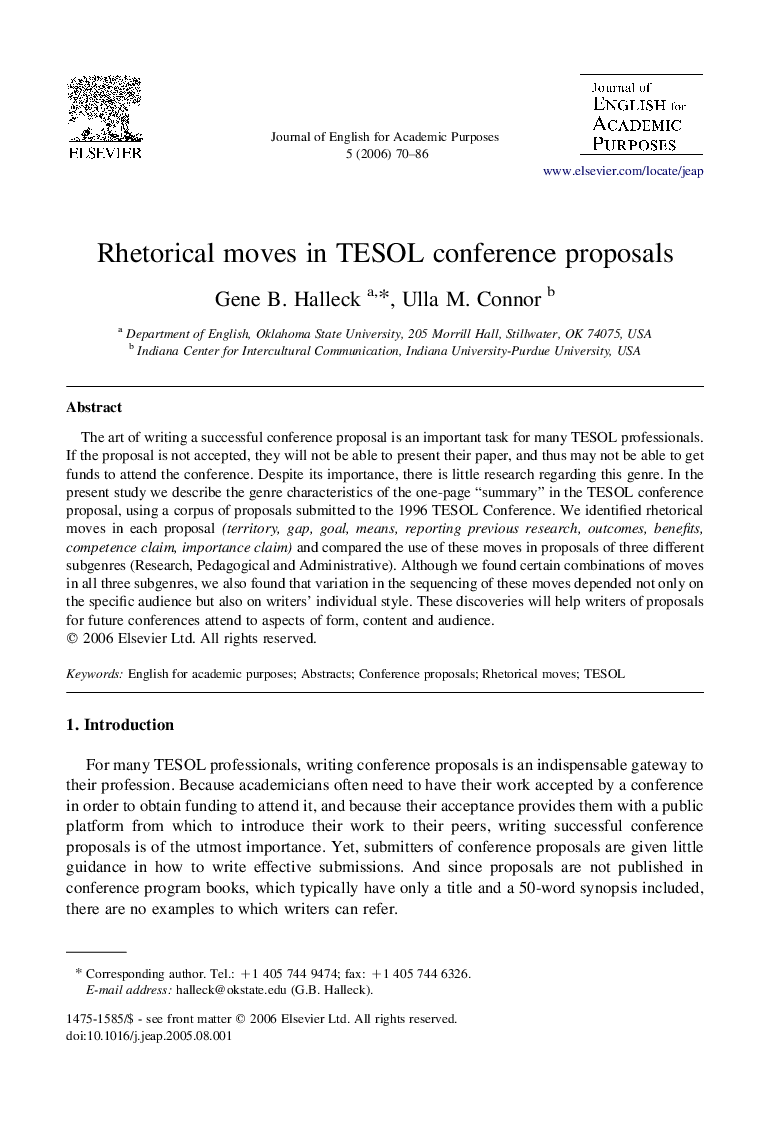| Article ID | Journal | Published Year | Pages | File Type |
|---|---|---|---|---|
| 360588 | Journal of English for Academic Purposes | 2006 | 17 Pages |
The art of writing a successful conference proposal is an important task for many TESOL professionals. If the proposal is not accepted, they will not be able to present their paper, and thus may not be able to get funds to attend the conference. Despite its importance, there is little research regarding this genre. In the present study we describe the genre characteristics of the one-page “summary” in the TESOL conference proposal, using a corpus of proposals submitted to the 1996 TESOL Conference. We identified rhetorical moves in each proposal (territory, gap, goal, means, reporting previous research, outcomes, benefits, competence claim, importance claim) and compared the use of these moves in proposals of three different subgenres (Research, Pedagogical and Administrative). Although we found certain combinations of moves in all three subgenres, we also found that variation in the sequencing of these moves depended not only on the specific audience but also on writers' individual style. These discoveries will help writers of proposals for future conferences attend to aspects of form, content and audience.
